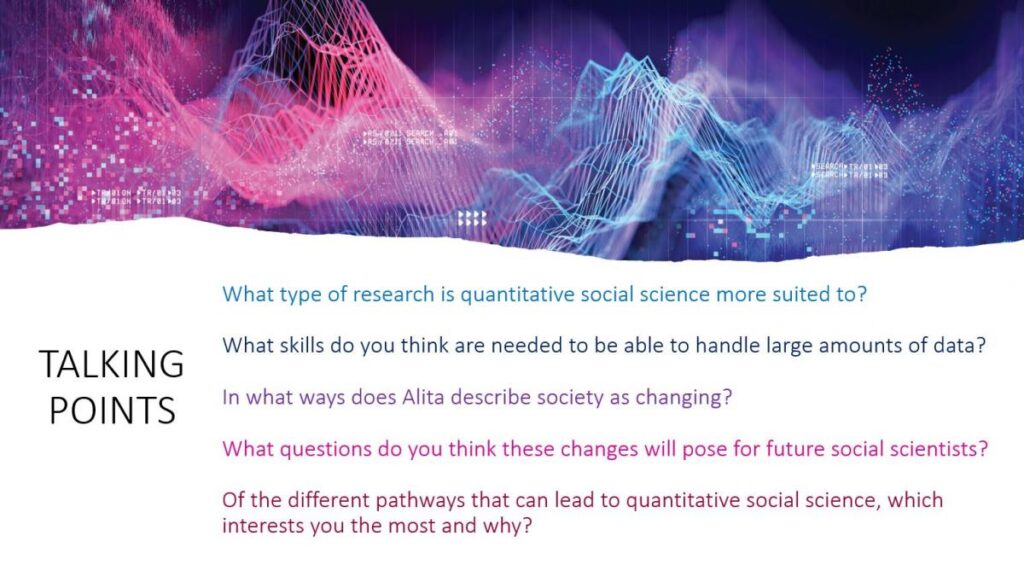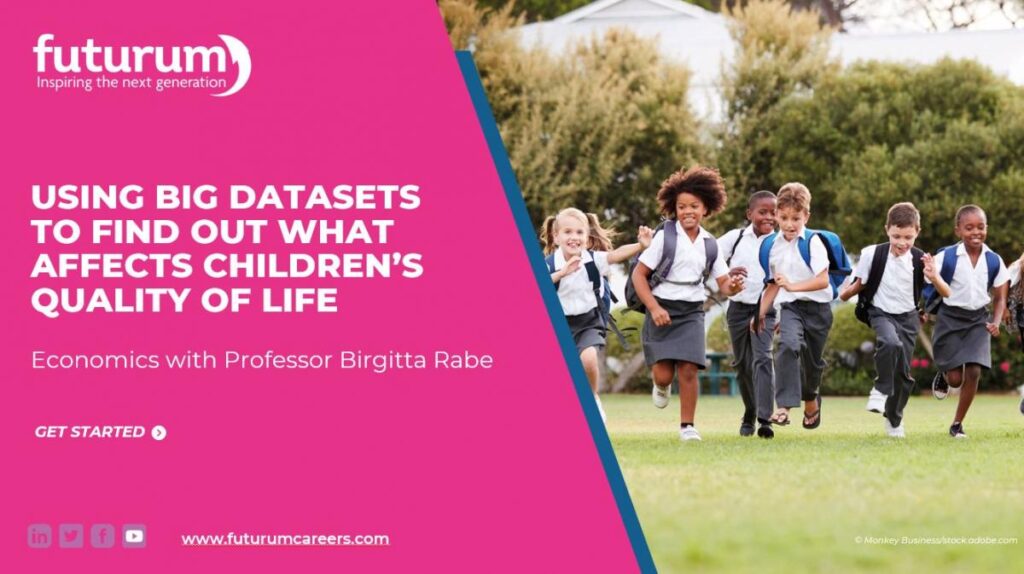Resource packs for high school students exploring quantitative longitudinal data and social science career paths based on Understanding Society.
Understanding Society worked with Futurum Careers to develop these lesson plans and activities for school students aged 14-19. The resources introduce students to the basics of quantitative social science data, through the work of Understanding Society, and encourages students to think about the challenges of collecting and using longitudinal data.
How one massive study is uncovering the secrets of UK society
This lesson plan also features the career paths of two of the Understanding Society team – Dr Alita Nandi, Associate Director for Outreach, and Nicole James, Survey Data Officer and ISER PhD student. They highlight the different routes they have taken in to working with social science data and the skills that are useful for working in a study like Understanding Society. The lesson also reflects on the individual research that Alita and Nicole do and how their work impacts on the wider world.
“Findings from my research have been presented to government departments, parliamentary select committees, and voluntary organisations. While conclusions may sometimes seem obvious, having the data to back it up means that it is more likely to translate into action.” Alita Nandi

The pack of resources includes an article explaining Understanding Society and the work of Alita and Nicole, an activity sheet which provides talking points to prompt students to reflect on the research and challenge them to devise their own longitudinal survey, and a powerpoint to help structure the lesson and give further discussion questions. The lesson plan links to KS4 and KS5 Social Science, Economics, Sociology, Psychology, Computer Science and Maths. It can also be used as a careers resource.
Downloaded this free teaching pack from the Futurum Careers website or from the tes teaching resources area.
Using big datasets to find out what affects children’s quality of life
This lesson plan enables students to delve into the impact of the Covid-19 pandemic on children’s lives. It is based on research from Birgitta Rabe, Professor of Economics at the Institute for Social and Economic Research, who has looked in detail at the effects of the pandemic on children’s schooling and their wellbeing. Using Understanding Society data, Birgitta was also able to look at how parents were affected by the disruption to schooling.
“Many people think that economics is only concerned with large-scale issues such as growth, interest rates and financial markets. In fact, there are scores of economists studying the behaviour of households and individuals. I am fascinated by the factors that influence how children develop, and I hope that my findings can make a difference to children’s lives – even if it is one small step at a time.” Birgitta Rabe

This resource pack includes an article and powerpoint looking at the importance of school for children’s wellbeing and how longitudinal data was used to track how children and young people coped during the pandemic. The materials also look at how the study of economics can help researchers better understand families and households. There is an activity sheet, which encourages students to think about why it’s important to survey children and parents, how pandemic policies may have directly affected them, and asks them to design their own survey. This resource links to KS4 and KS5 Economics, Social Science, Sociology and Maths. It can also be used as a careers resource.
Download this free teaching pack from the Futurum Careers website.
These resources were produced by Futurum Careers, a free online resource and magazine aimed at encouraging 14-19-year-olds worldwide to pursue careers in science, tech, engineering, maths, medicine (STEM) and social sciences, humanities and the arts for people and the economy (SHAPE). For more information, teaching resources, and course and career guides, see www.futurumcareers.com